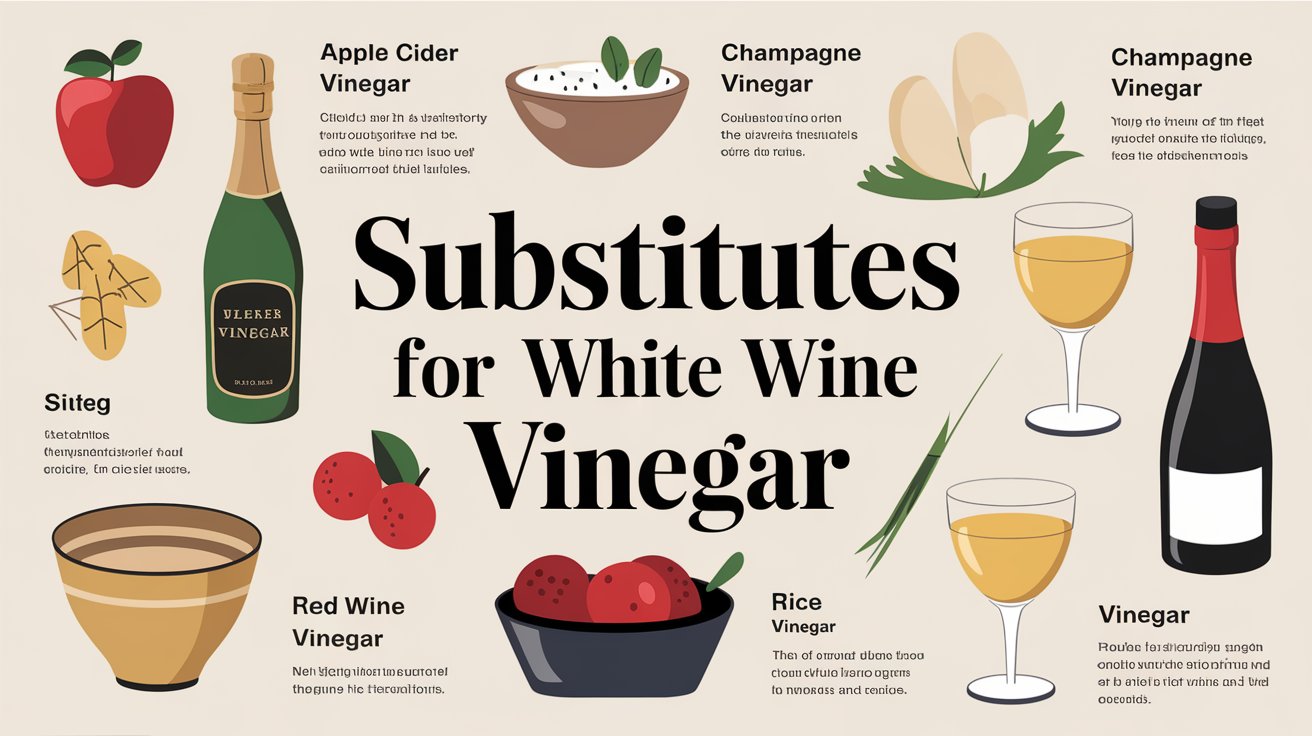
Have you ever been short of white wine vinegar while prepping a meal?
Knowing the right substitute can keep your cooking on track without a trip to the store, whether you’re whisking up a dressing or marinating meat.
Imagine using apple cider vinegar to bring a fruity twist to your salads or rice vinegar to sweeten your sushi without overwhelming it.
Each substitute not only saves your dish but enhances it, introducing new dimensions of flavor.
Discover the best alternatives for white wine vinegar, how they differ in taste, and how to use them in your favorite recipes to elevate your culinary creations effortlessly!
What are the Best Alternatives to White Wine Vinegar?
1. Apple Cider Vinegar
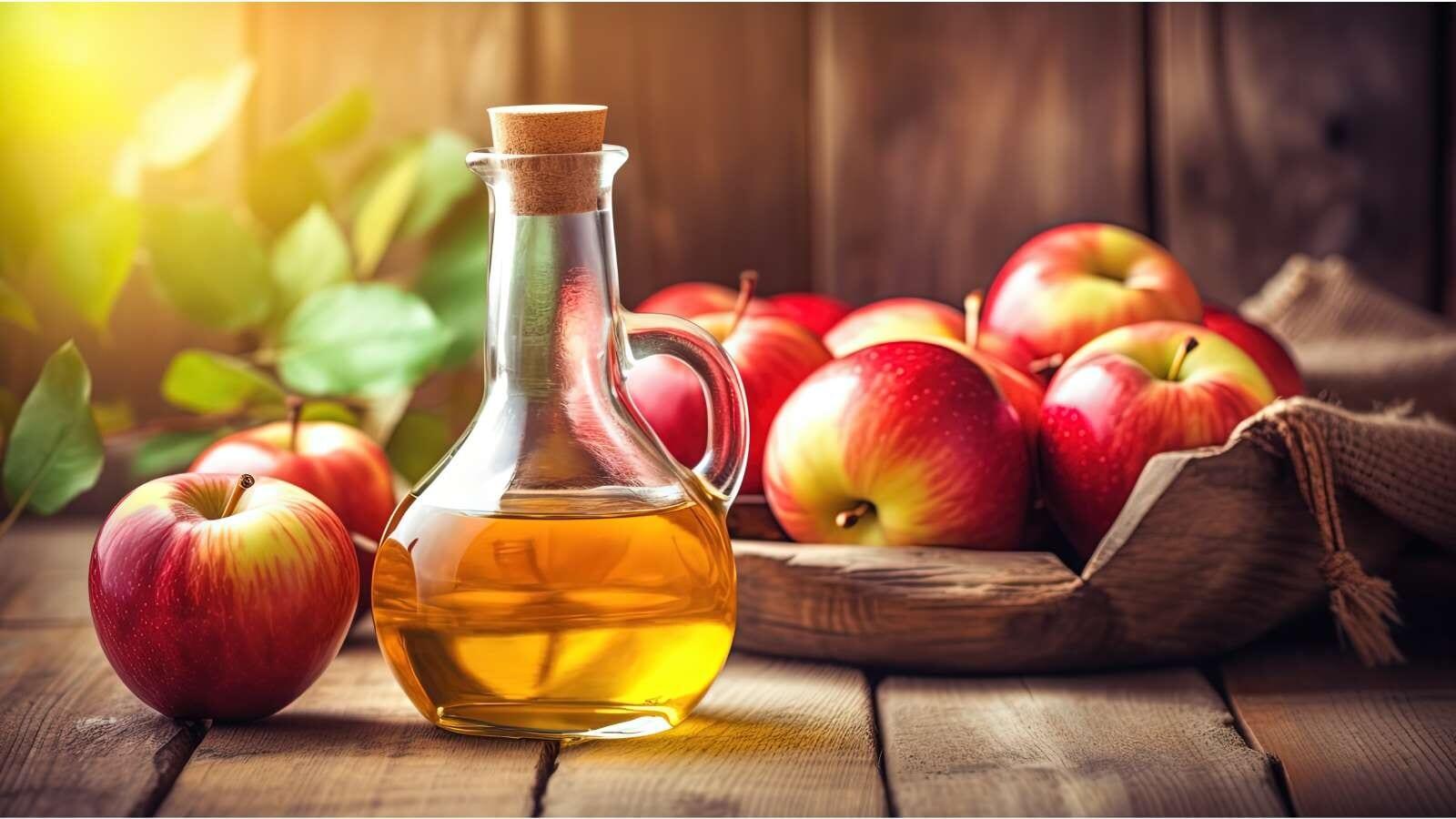
Apple cider vinegar, derived from fermented apple juice, adds a gentle fruity essence to dishes.
It subtly enhances flavors without dominating, making it perfect for salad dressings or adding a fresh twist to soups.
This vinegar is also healthful, boasting probiotics that can support digestion and potentially help regulate blood sugar levels.
- Flavor Profile: Slightly fruity and less acidic than white wine vinegar, with a mild apple flavor.
- Culinary Uses: Ideal for salad dressings, marinades, and to add acidity to soups.
- Benefits: It contains probiotics and is believed to help lower blood sugar levels.
- Nutritional Information: Low in calories and contains trace amounts of potassium.
2. Rice Vinegar
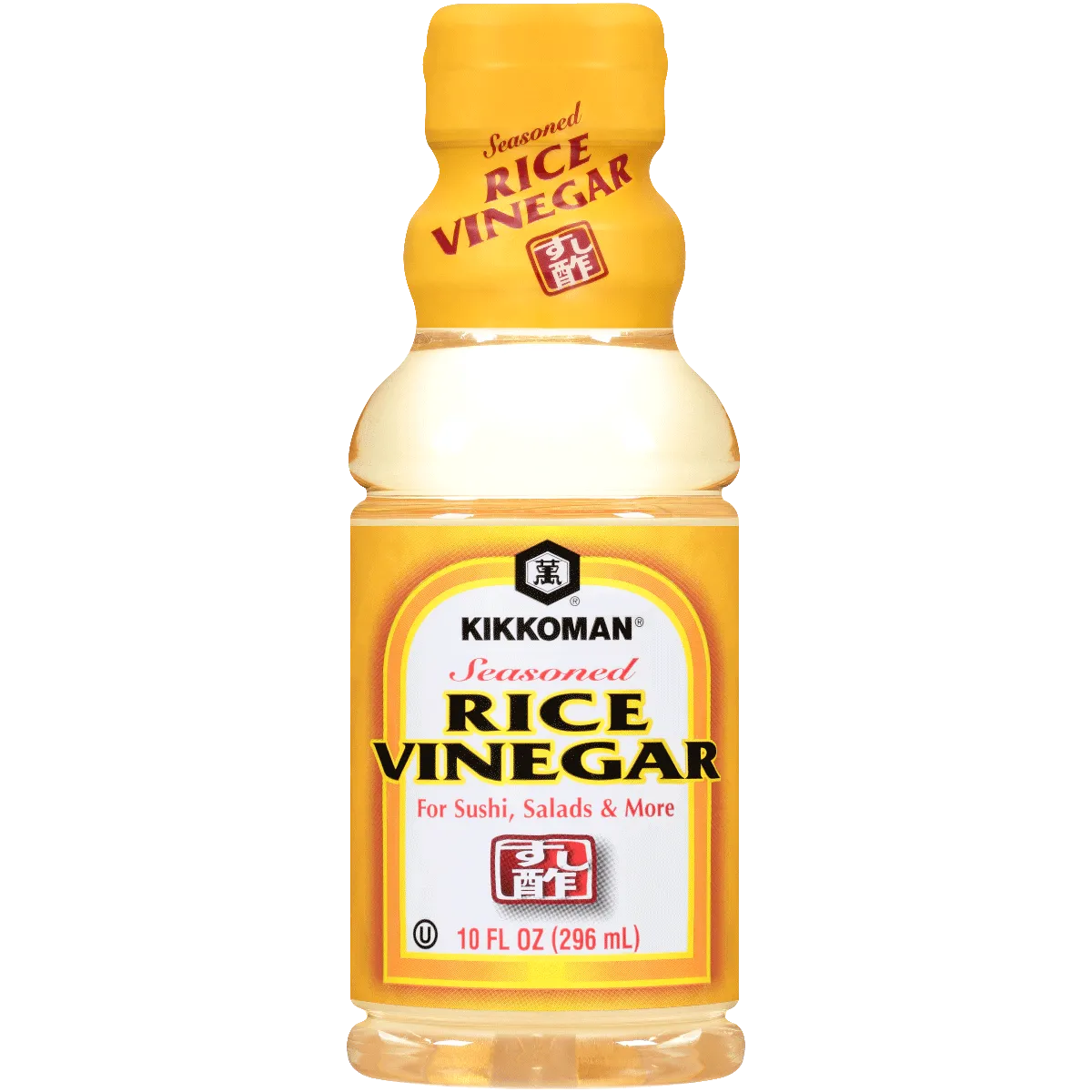
Rice vinegar, which has its origins in Asian culinary traditions, is a milder, sweeter alternative to white wine vinegar.
Its understated sweetness complements sushi rice and stir-fries, adding a light flavor that does not overpower delicate dishes.
This vinegar is also a fantastic choice for those looking to reduce their sodium intake while still enjoying flavorful meals.
- Flavor Profile: Sweeter and milder than white wine vinegar, with a subtle hint of sweetness.
- Culinary Uses: Perfect for sushi rice, stir-fries, and salad dressings.
- Benefits: Low in sodium and can be a healthier alternative for those reducing salt intake.
- Nutritional Information: Generally calorie-free and contains small amounts of amino acids.
3. Champagne Vinegar

Crafted from fermented champagne, this vinegar features a sophisticated, mild flavor with a hint of floral notes.
It’s particularly suited to dishes that require a gentle vinegar touch, such as light vinaigrettes or refined seafood sauces.
The subtle flavors enhance without masking the natural tastes of quality ingredients.
- Flavor Profile: Milder and slightly floral, less harsh than other vinegars.
- Culinary Uses: Excellent for light vinaigrettes, seafood dishes, and sauces.
- Benefits: Less overpowering, making it suitable for delicate dishes.
- Nutritional Information: Like white wine vinegar, it is low in calories and contains trace minerals.
4. Red Wine Vinegar
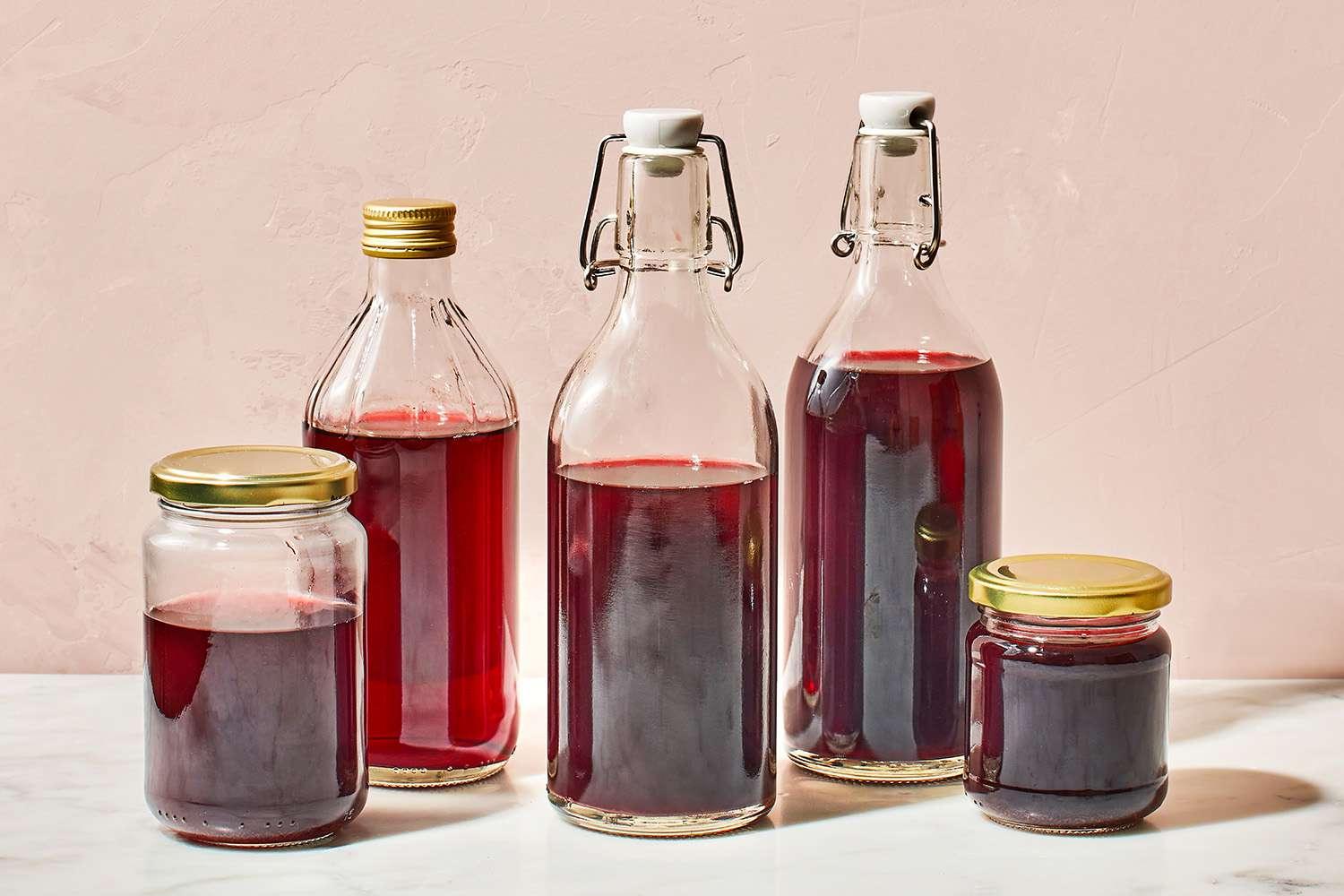
Known for its bold, tangy profile, red wine vinegar adds flavor to robust dishes such as stews and marinades.
Its rich color and dynamic taste derive from the fermentation of red wine, making it a staple for enhancing heartier recipes. Additionally, it offers antioxidants that contribute to its nutritional value.
- Flavor Profile: Bold and tangy with a rich color.
- Culinary Uses: Great for hearty stews, marinades, and vinaigrettes.
- Benefits: Contains antioxidants from red wine.
- Nutritional Information: Low calories but richer in antioxidants than white wine vinegar.
5. Sherry Vinegar
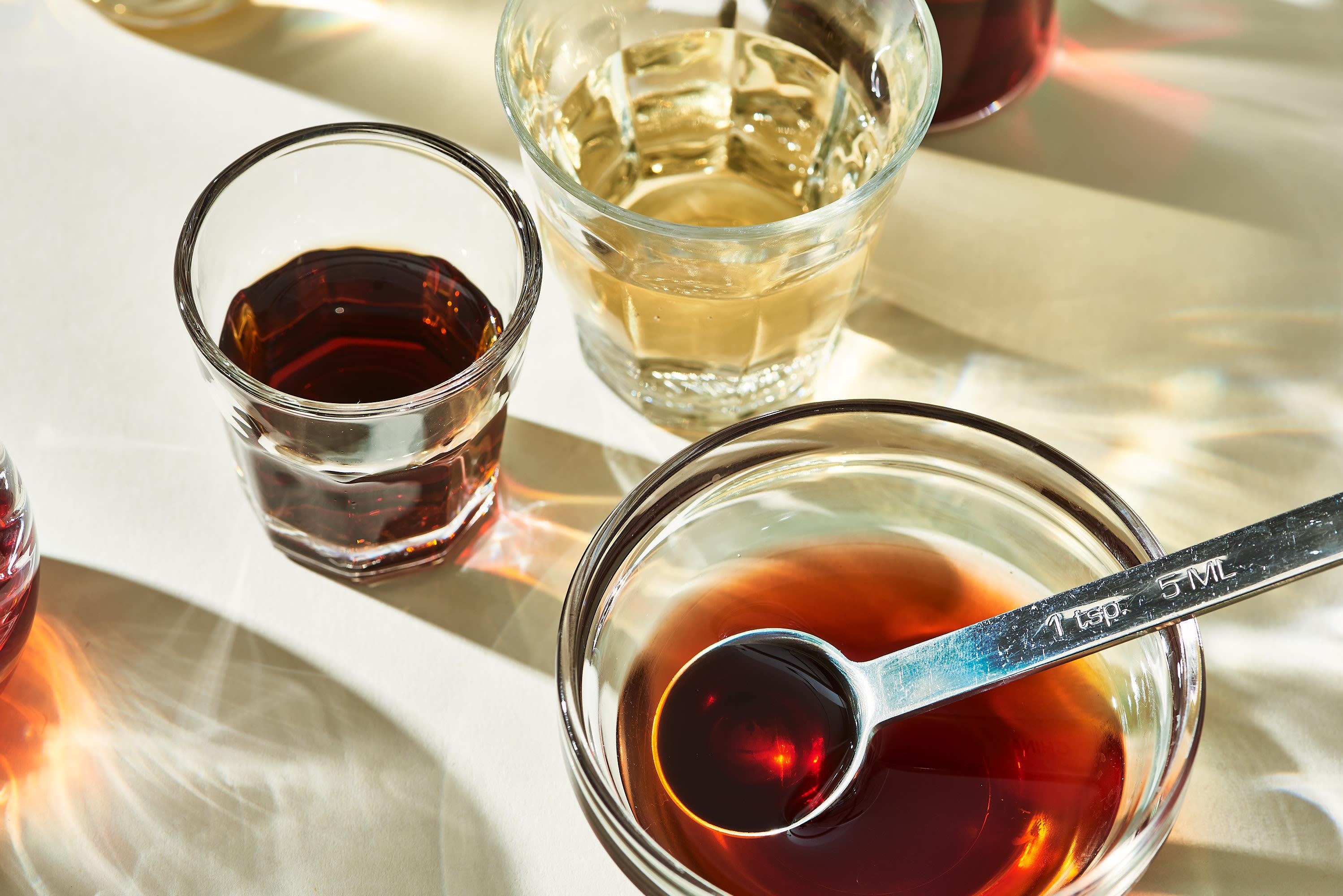
Produced from sherry wine and aged longer than many other vinegars, sherry vinegar introduces a nutty, rich, and slightly sweet complexity to culinary creations.
Ideal for sophisticated sauces, reductions, and glazes, its depth enriches dishes with a mature, well-rounded flavor that is hard to replicate with other vinegar.
- Flavor Profile: Nutty, rich, and slightly sweet with a complex flavor.
- Culinary Uses: Enhances the flavor of sauces, reductions, and glazes.
- Benefits: The aging process may concentrate on beneficial compounds.
- Nutritional Information: Contains antioxidants and the same calories as other vinegar but with more depth in flavor.
6. Lemon Juice
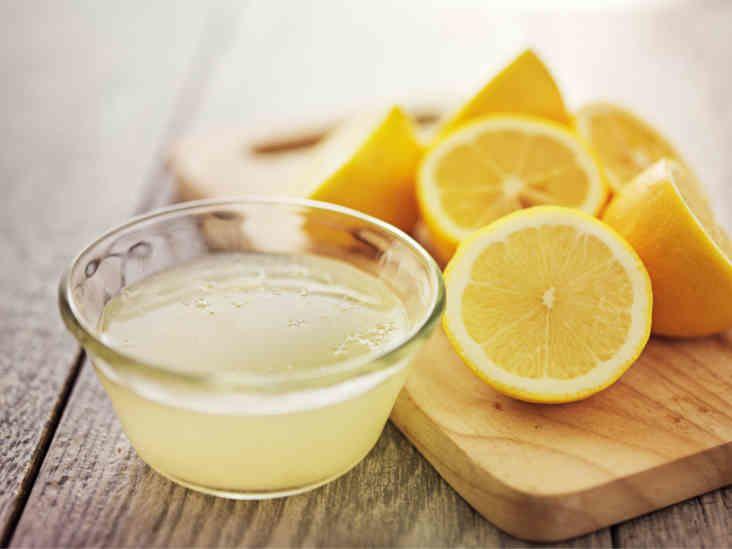
As a natural acidifier, lemon juice provides a sharp, bright flavor that complements various dishes, from dressings to seafood.
High in vitamin C, it enhances flavor and offers health benefits, aiding digestion and improving skin health. Its versatility and vibrant tang make it a refreshing substitute in many recipes.
- Flavor Profile: Sharp, tangy, and bright.
- Culinary Uses: A versatile acidifier in dressings, seafood, and beverages.
- Benefits: High in vitamin C, it can aid digestion and skin health.
- Nutritional Information: Very low in calories, high in vitamin C, and contains potassium.
7. White Vinegar

Distilled from grain alcohol, white vinegar is known for its sharp, potent acidity. It excels in pickling, marinades, and even as a natural cleaning agent around the kitchen.
Its robust profile makes it a powerful tool for culinary uses where a pronounced vinegar essence is desired.
- Flavor Profile: Sharp and much more acidic than white wine vinegar.
- Culinary Uses: Used in pickling, marinades, and as a natural cleaning agent.
- Benefits: Antimicrobial properties and can help regulate blood sugar levels.
- Nutritional Information: Very low in calories and contains no nutrition besides acetic acid.
8. Tarragon Vinegar
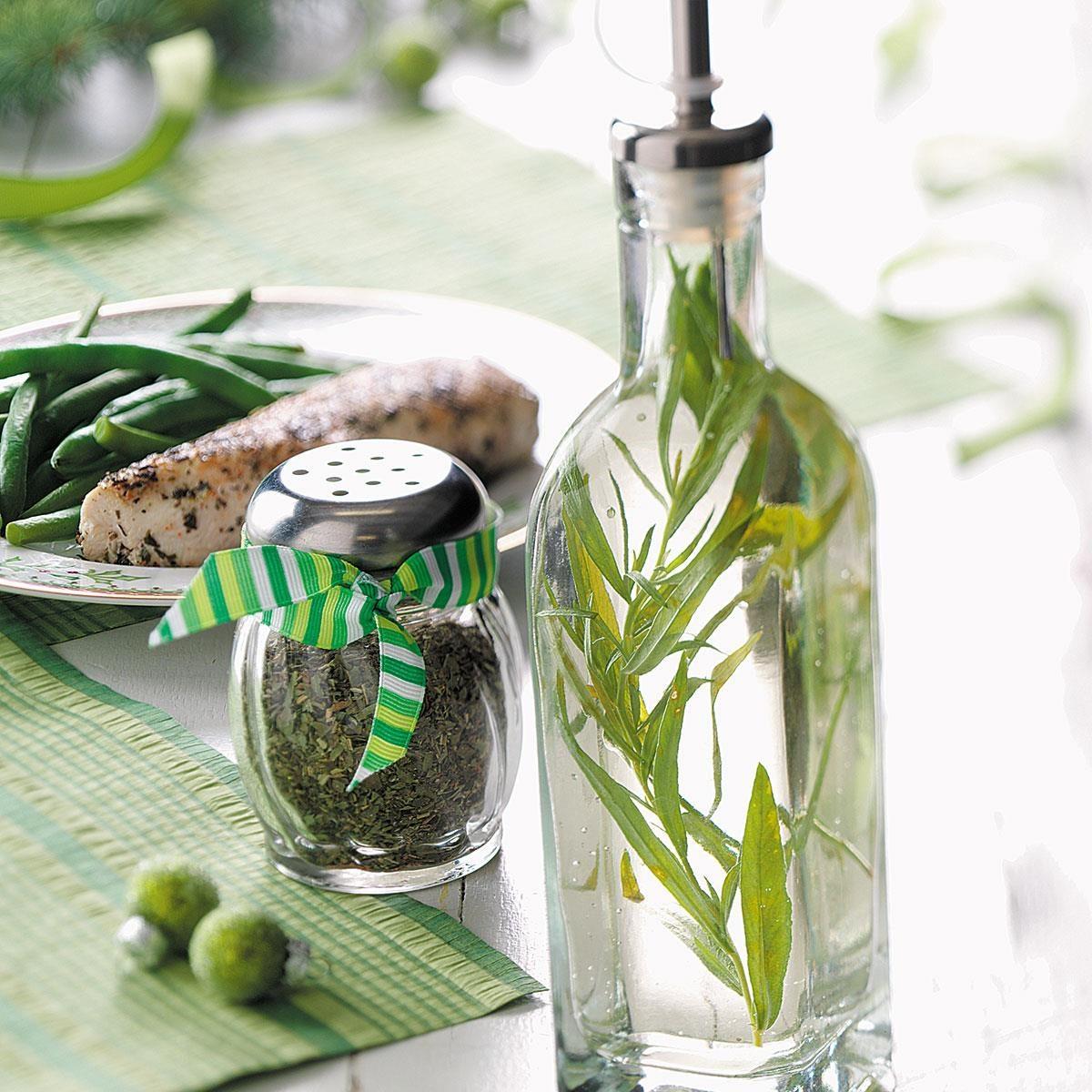
Infused with the herb tarragon, this vinegar carries a distinctive anise-like flavor that sets it apart. It’s especially favored in French cuisine, perfect for classic sauces and dressing lighter salads.
Tarragon vinegar adds a unique herbal touch that enhances dishes with a sophisticated flair, suitable for fine dining recipes.
- Flavor Profile: Distinctive, with a slight anise-like flavor due to tarragon.
- Culinary Uses: Ideal for sauces like béarnaise and for dressing lighter salads.
- Benefits: Adds a unique flavor without overwhelming dishes, suitable for enhancing rather than dominating a dish.
- Nutritional Information: Similar in calories to other vinegar but with added flavors from herbs.
Summing Up
Understanding the right substitutes for white wine vinegar is more than just a kitchen hack.
It’s an essential skill that ensures your dishes are never compromised, even when your pantry is lacking.
Each substitute offers unique flavor profiles and benefits, allowing you to adapt and innovate your cooking easily.
Knowing these alternatives empowers you to cook confidently and creatively, whether enhancing a marinade with the robust notes of red wine vinegar or adding a delicate zest with champagne vinegar.
The versatility of these substitutes can transform ordinary recipes into extraordinary meals.
After all, the best chefs can adapt flawlessly with the ingredients.
